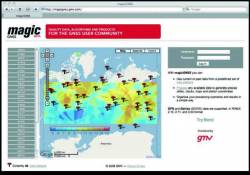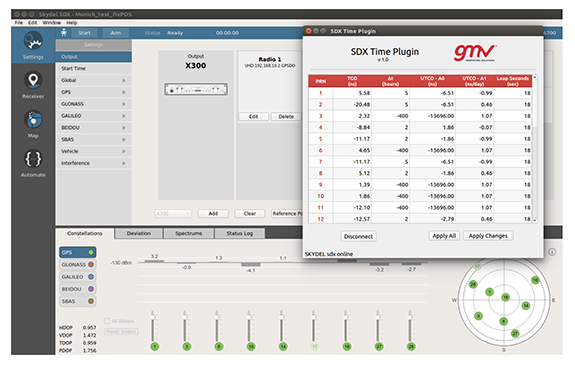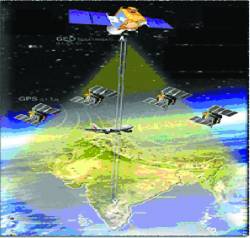
GMV Aerospace and Defense S.A. has announced its new magicGNSS, a set of software tools that supports a wide variety of GNSS projects and objectives, including service volume simulations, core operational functions (such as orbit, clock, and ionosphere determination and prediction), receiver performance analysis, added-value services including integrity, local augmentation developments, and all related performance and accuracy analyses.
GMV Aerospace and Defense S.A. has announced its new magicGNSS, a set of software tools that supports a wide variety of GNSS projects and objectives, including service volume simulations, core operational functions (such as orbit, clock, and ionosphere determination and prediction), receiver performance analysis, added-value services including integrity, local augmentation developments, and all related performance and accuracy analyses.
The Service Volume Simulator (SVS) is a tool that allows the rapid evaluation of navigation performances for different user applications in different environments (including urban canyons). SVS demonstrates the benefits to be gained with a combination of navigation systems and sensors to support feasibility and cost-benefit studies.
A Receiver Performance Analysis (RXAN) software tool implements user receiver algorithms providing GNSS performance (GPS, GLONASS and SBAS Systems) given the “true” position as entered by the user. It can process data from several receiver models, RINEX navigation and observation files, and SBAS messages, and provides standard performance and integrity information.
The tool set may be applied to projects related to GPS, Galileo, or GLONASS, as well as their augmentation systems. GMV also offers magicGNSS Beta, a free-of-charge online service for registered users. At present it provides a demo version of the Orbit Determination & Time Synchronization (ODTS) module supporting GPS and GIOVE-A and -B (Galileo) data.


![GMV Demonstrates Cloud Cooperative Navigation ICON testing at the Nottingham Geospatial Building; Image courtesy ESA[88]](https://insidegnss.com/wp-content/uploads/2024/07/ICON-testing-at-the-Nottingham-Geospatial-Building-Image-courtesy-ESA88-150x150.jpg)


